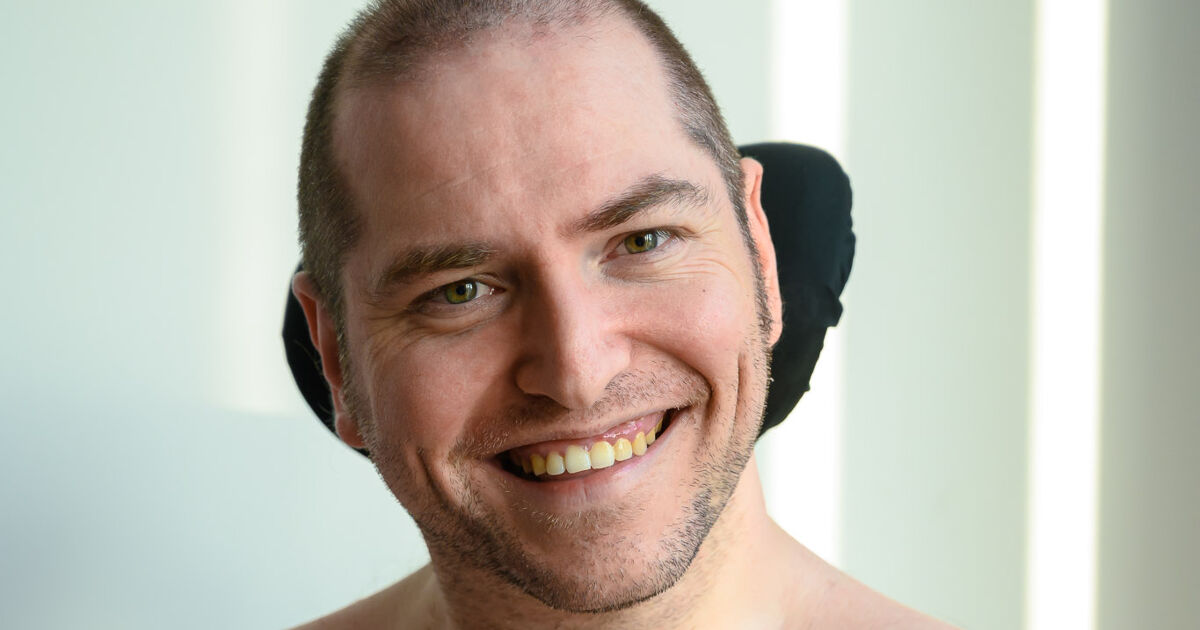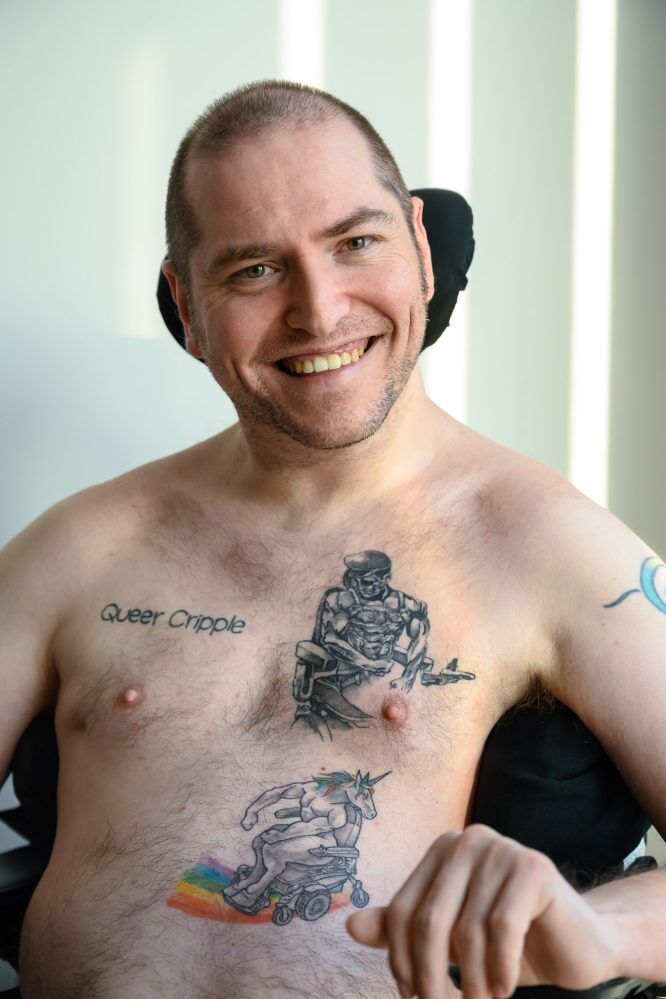
When I was 19, I had just moved away from my hometown, away from my parents’ watchful eyes, and I was free to explore my sexuality like never before. Every night after class, I would go on the web to a gay website – gay.com to be precise, looking for someone to have my first sexual experience with. I finally met a guy on there who was willing to come over. He was okay with the fact that I am a wheelchair user, and after a few back-and-forth chats about what we both wanted, he was on his way.
When he got to my dorm, I was flush with anticipation. He knew I needed to be carried into bed and undressed (because I couldn’t do it myself), and when he did those things, I melted. I reciprocated with hungry kisses, and — quicker than either of us wanted — I climaxed. As we lay there together, slick with sweat and other bodily fluids, I turned to him, hopeful, and asked: “When can we go on our date?” He looked straight back at me and said, “Oh, no, we’re not going to date. I just came by because I felt bad for you. You were just a pity f**k.”
Related
Pride isn’t just inaccessible for disabled people, it’s emotionally inaccessible too
I want to be able to party and show up for my community… but we’re often treated as inconvenient afterthoughts.
Up until that moment, I lived under the illusion that queer people who had been so oppressed by others, were open and accepting of everyone. I hold this moment as a pivotal one in my life, one wherein I had to speak out about my queerness and disability.
Never Miss a Beat
Subscribe to our newsletter to stay ahead of the latest LGBTQ+ political news and insights.
Subscribe to our Newsletter today
As I aged, I felt I had to speak up because no one was really talking about sex, disability, and queerness the way I was experiencing it, so I wanted to change that. If I’m being completely honest, I wanted guys to see and notice me in all my disabled glory so that I could erase the memory of my first time, and have the kind of intimacy that I craved. If I wanted to be seen by my queer peers, I had to be loud, no matter what the cost.
Throughout my work as a queer cripple activist championing queer disabled sex, I have done many things to show people that our sexuality is just as important as able-bodied queers. From throwing the world’s first disabled orgy in Toronto in 2015, to starring in queer adult films as a disabled actor, to being in a sex scene on the 2022 Queer As Folk reboot, I have been unabashedly brazen in my activism, making sure that disabled bodies like mine were front and center when we talk about sex.
“The chances of someone being queer and also living with a disability are quite high… but we never have a fundraiser for a ramp at the queer hotspots.”
Andrew Gurza, self-described queer cripple activist
I have created an award-winning podcast all about sex and disability, called Disability After Dark — since 2016, I have published over 500 episodes, talking to porn stars and everyday disabled people as we embark on discussions of sexuality, disability and everything in between.
Alongside all of this, I give talks to universities and organizations wanting to learn about sex and disability, and have written a new book all about my queer experiences called Notes From A Queer Cripple to remind people that disabled people are sexual beings.
Despite all this, we are often still discounted when it comes to queer sexuality.
While doing this work over the years, I have learned that we only value queer sex if it is able-bodied. My disabled body has no place in queer spaces. Bars and clubs often don’t have accessibility to get in, or accessible washrooms. Bathhouses are inaccessible for many of the same reasons. The apps are full of guys who wouldn’t bother giving you a second glance because your disability doesn’t live up to the gay male standard.
You can have all the ramps in a queer space, but if the attitude of the queer people around you is ableist — that is, the belief that non-disabled people are superior to disabled people — the space isn’t at all accessible. Ableism keeps me from experiencing my queerness at its core, but it also keeps a potential lover or partner from seeing me at all, either, and that’s difficult to swallow.
While it is impossible to find definitive numbers, the chances of someone being queer and also living with a disability are quite high. According to the Human Rights Campaign, one in three queer people identify as having a disability of some sort. This means that queerness and disability should be like two peas in a pod.
We have HIV and AIDS fundraisers every year, but we never have a fundraiser for a ramp at the queer hotspots. Instead, queer disabled people are shunned from within queer community. Able-bodied queers see us as an obstacle in their pursuit of faceless, nameless sex, and that hurts; and many venues and events treat us as an afterthought, if they consider us at all. As a result, queer disabled people like me, deal with depression, isolation and exclusion. They are not seen, so they begin to believe that no one wants to see them at all.

When I go to bed at night, I dream of clubs that cater to my needs. Ones with ramps, and attendant care, and all the things I need to feel safe. I dream of the moment that a hot guy will push through his ableist views on sex and disability, and get to know me anyway. The dream keeps me motivated to push forward and never stop talking or fighting for this. The dream I have about access in queer spaces should be the blueprint for the next generation of queerness.
I know that my work is impacting queer disabled people, because they have told me, reading my words or listening to my podcast has helped them feel not so alone as before. I have yet to see a huge community change as a result of my work, but the little signs mean something is working. My work inspired a queer orgy scene in the 2022 Queer As Folk reboot, and my work has been featured in queer publications in the hopes of making change. I know that my words will have a lasting impact on those who come after me.
I am not the only queer cripple to fight this fight; Ryan O’Connell, writer and Actor in Netflix’s Special comes to mind. He paved the way for me and so many others. I also think of Lucy Webster, a disabled lesbian, and author out of the UK, who is helping to ensure that queer female spaces think about queer disabled women too.
I also won’t be the last queer activist working to make public LGBTQ+ spaces more accessible to people like me. But until things change for queer disabled people, I’ll have to keep dreaming, so that some 19 year old queer cripple never has to be called a “pity f**k” ever again.
Subscribe to the LGBTQ Nation newsletter and be the first to know about the latest headlines shaping LGBTQ+ communities worldwide.